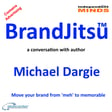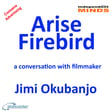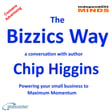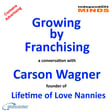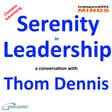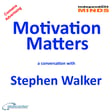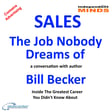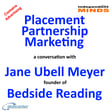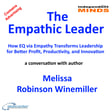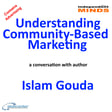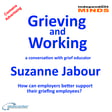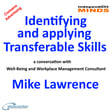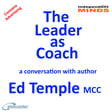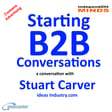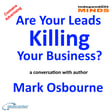
Beyond Busy – a conversation with Ann Carden
Exploring the secret to effective time management
Ann Carden was a happy but cash-strapped stay-home mom who became a successful serial entrepreneur, author and business coach.
Ann has successfully built and sold at several businesses, that were built around her passions and now spends time supporting other entrepreneurs.
In this episode of The Independent Minds Ann and host Michael Millward explore what Ann has identified as the best ways for entrepreneurs and business managers to manage time and work priorities, so that they can avoid being able to say that they are beyond busy.
Their conversation covers
- ·The reasons why business people feel beyond busy
- Why some people consider being too busy to take time off a badge of honour
- How being beyond busy creates problems for managers, their teams and businesses as a whole
- How business people can avoid getting to a point of being beyond busy.
More information about Ann Carden and Michael Millward is available at abeceder.
Audience Offers – listings include links that may create a small commission for The Independent Minds
Buy Ann Carden books at Amazon
- Be the one they choose
- Expert in You
- 10 Marketing & Money Making Secrets: Every Business Owner Must Know
- 30 Minutes to $30,000: How I Find ANY Business $30,000 Or More In 30 Minutes!
The Independent Minds is made on Zencastr, because as the all-in-one podcasting platform, Zencastr really does make creating content so easy.
If you would like to try podcasting using Zencastr visit zencastr.com/pricing and use our offer code ABECEDER.
Travel
With discounted membership of the Ultimate Travel Club, you can travel anywhere at trade prices on flights, hotels, trains, and many more travel related purchases.
Fit For Work We recommend The Annual Health Test from York Test; a 39-health marker Annual Health Test conducted by an experienced phlebotomist with hospital standard tests carried out in a UKAS-accredited and CQC-compliant laboratory.
A secure Personal Wellness Hub provides easy-to-understand results and lifestyle guidance
Visit York Test and use this discount code MIND25.
Visit Three for information about business and personal telecom solutions from Three, and the special offers available when you quote my referral code WPFNUQHU.
Being a Guest
We recommend the podcasting guest training programmes available from Work Place Learning Centre.
We use Matchmaker.fm to connect with potential guests If you are a podcaster looking for interesting guests or if you have something interesting to say Matchmaker.fm is where great guests and great hosts are matched and great podcasts are hatched. Use our offer code MILW10 for a discount on membership.
We appreciate every like, download, and subscriber.
Thank you for listening.
